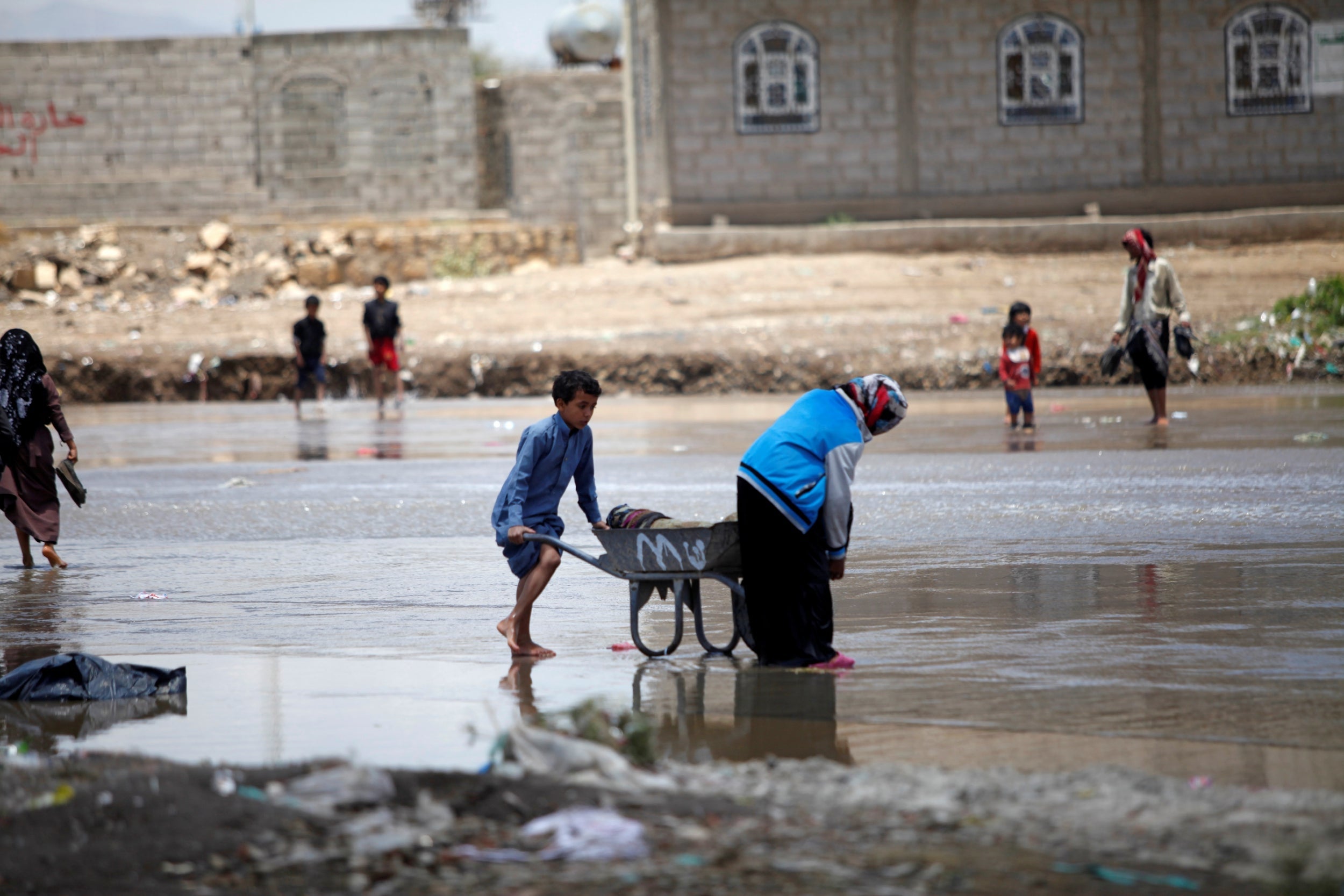Saudi-led coalition bombs Yemen ‘dozens’ of times despite declaring ceasefire last week to combat coronavirus
Fighting threatens to hamper efforts to halt spread of Covid-19 in Yemen where a five-year war has destroyed half the country's healthcare centres

Your support helps us to tell the story
From reproductive rights to climate change to Big Tech, The Independent is on the ground when the story is developing. Whether it's investigating the financials of Elon Musk's pro-Trump PAC or producing our latest documentary, 'The A Word', which shines a light on the American women fighting for reproductive rights, we know how important it is to parse out the facts from the messaging.
At such a critical moment in US history, we need reporters on the ground. Your donation allows us to keep sending journalists to speak to both sides of the story.
The Independent is trusted by Americans across the entire political spectrum. And unlike many other quality news outlets, we choose not to lock Americans out of our reporting and analysis with paywalls. We believe quality journalism should be available to everyone, paid for by those who can afford it.
Your support makes all the difference.The Saudi Arabia led coalition has launched dozens of airstrikes in Yemen a week since declaring a truce to help the country battle the deadly coronavirus, according to a new report.
The United Nations has urged all sides to come to the negotiating table fearing that hostilities will only hamper efforts to stamp out Covid-19, after the country announced its first case on 10 April.
The Gulf coalition launched a unilateral cease-fire a week ago answering a global appeal by the UN’s Secretary-General Antonio Guterres who called for world-wide truces of the pandemic.
But the Houthis dismissed the Gulf offer as a ploy and clashes have continued since, casting doubt over a future peace agreement.
The Yemen Data Project said on Friday it recorded at least 106 Saudi-led airstrikes, across 26 raids in Yemen over the last week since the ceasefire was declared. The Houthi-held capital Sanaa was the worst hit.
Although this is a reduction on the week before, the monitoring group said it followed the worst month of bombardments since November 2018.
The watchdog recorded 227 bombings in March, nearly a 50 per cent rise from February and the highest number of air raids in a single month in a year and a half.
The United Nations said that more than 500 people, a third of them children, have been killed in Yemen during the first quarter of 2020, despite the global pandemic.
The Houthis have advanced on areas in the centre of the country and also reportedly fired missiles at Saudi Arabian territory.
On Thursday Mark Griffiths, the UN Envoy for Yemen, told the UN Security Council talks between the country's Gulf-backed recognised government and the Houthis were “making very good progress."
"I believe we are moving towards a consensus over the proposals, particularly on the principle of a nation-wide ceasefire," the envoy said.
"There cannot be a more timely moment for the two parties to commit to silencing the guns and ending the conflict through a peaceful, political solution," he added.
Medics have warned of the deadly impact of a coronavirus epidemic in Yemen, where only half the medical centres are functioning following a five-year war.
The fighting has already sparked the world’s largest humanitarian crisis in terms of numbers with 80 percent of the population or some 24 million people relying on humanitarian aid to survive.
Two-thirds of the country, meanwhile, have been pushed to the brink of famine.
This has weakened many Yemenis, the UN’s humanitarian chief Mark Lowcock said this week adding that “epidemiologists warn that COVID-19 in Yemen could spread faster, more widely and with deadlier consequences than in many other countries."
The fighting first erupted when the Tehran-backed Houthis swept control of the country ousting recognised Yemeni president Abedrabbo Mansour Hadi.
Saudi Arabia and its Sunni partners, including the UAE, Egypt and Sudan, launched a bombing campaign in March 2015 to reinstate their ally Mr Hadi.
Despite several attempts at ceasefire and truces, none have held.
Abdel Salam, a spokesman for the Houthis, said Thursday the current UN peace proposal neglects a key rebel demand to lift Saudi Arabia's air-and-sea blockade, which aid officials partly blame for fuelling the country's humanitarian crisis.
"Dialogue under fire and siege is only a strong-arm tactic that works in the interest of the military option," Salam said.
Piling on the pressure is massive UN funding shortfalls which the UN warns will see its key humanitarian programmes in Yemen shut down.
Mr Lowcock said this week that unless they were able to secure additional financial support quickly 31 of the UN’s 41 programmes in the country will close in the next few weeks.
This could mean that up to 1 million displaced will not receive critical supplies and nutrition programmes will be cut, "affecting 260,000 severely malnourished children and 2 million more children with moderate malnutrition," he said.
Join our commenting forum
Join thought-provoking conversations, follow other Independent readers and see their replies
Comments